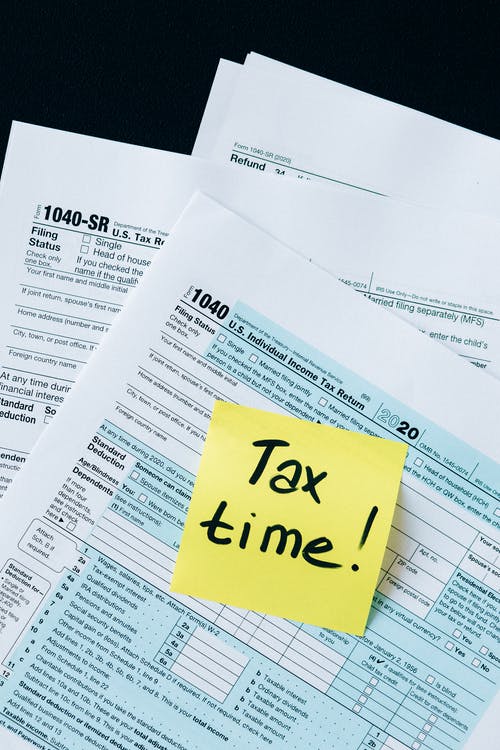
Its Tax Time--Choosing the Right Tax Preparer
Dealing with your taxes can be, well, taxing! Mistakes can have serious and costly consequences. So can choosing the wrong preparer. You are entrusting someone with your most sensitive information. They have access to your personal identification, financials, and information about any dependents. Selecting someone qualified, knowledgeable, and competent is important. Business Consumer Alliance wants you to be prepared this tax season and offers some advice on choosing a tax preparer.
What Kind of Tax Preparer Do You Need?
Before you choose a tax preparer, ask yourself some questions:
- What kind of service do you need? Do you only want someone to complete your tax return now or to act as a financial adviser all year-round?
- What can you afford to pay?
- Is it important to have the same person prepare your taxes next year?
When you decide what kind of preparer you will need, it may be helpful to ask family, friends, and colleagues for referrals.

Choosing a Tax Professional
There are a variety of tax return preparers, including enrolled agents, CPAs, attorneys or others with different skill levels, education, and expertise. Anyone that is paid to prepare taxes is required to have a PTIN. PTINs are issued by the Internal Revenue Service (IRS) and used as the tax return preparer's identification number. The IRS’s Directory of Federal Tax Return Preparers lists a variety of preparers with specific credentials and qualifications.
When looking for a tax preparer, make sure to check their qualifications, education, and experience. Ask about their training and whether they take continuing education courses to make sure they are up-to-date with the latest tax filing procedures. If the individual is licensed, look up their credentials to make sure the license is current, valid, and in good standing.
Only attorneys, CPAs, and enrolled agents have unlimited representation rights. That means they can represent you before the IRS regarding tax matters, including audits, collections, and appeals. Preparers without credentials that participate in annual tax filing season programs can only represent you in limited situations. If they are not listed in the IRS’s directory, they generally will not be able to represent you before the IRS if a problem with your return occurs. The IRS Tax Pro Association Partners has a list of various tax professional associates qualified to assist with tax matters.
Check out the tax professional or business in our Business Consumer Alliance directory. When you speak with the preparer, discuss the cost of the service, and ask for an estimate. A tax preparer should never guarantee a refund before completing a return.
Questions to Ask Your Preparer
In addition to asking about your preparers training and experience, consider some of the following additional questions:
What is the turnaround time for the return?
Is your preparer available outside of tax season?
Will the preparer take responsibility for any penalty arising from their error or misjudgment?
If you're audited, can you reach your tax preparer?
Can and will the preparer represent you during an audit?
What experience does the preparer have in representing clients at audits or in disputes?
What will the preparer charge to represent you?
When you've selected a tax preparer, be sure to understand the terms of your contract and carefully read any fine print before you sign.
Watch for These Warning Signs
There are some clear red flags to look for when selecting a tax preparer. Some untrustworthy and fraudulent behavior to look out for includes:
- Promises to get you a bigger tax refund even before reviewing your records
- Asking you to sign a blank or unfinished tax return
- Offering to deposit your refund into their bank account
- Preparer whose fee is based on the size of your refund
- A preparer that does not sign their name or PTIN on your final tax return
- Require payment in cash only and does not provide a receipt
- Make up income to qualify you for tax credits or claim false deductions to boost the size of the refund
How Much Does Tax Preparation Cost?
Fees for tax preparation services vary. If you are using the services of an attorney or CPA, you will typically pay more than hiring an enrolled agent or seasonal preparer. Fees should be based on the complexity of the return and never on the size of the tax saving or refund.
Free Assistance for Qualified Individuals and the Elderly
The IRS offers free basic tax return preparation for qualified individuals through the Volunteer Income Tax Assistance (VITA) program. Through VITA, IRS certified volunteers provide basic income tax return preparation, electronic filing, information about special tax credits and tax counseling. Qualified individuals include: taxpayers whose annual income is $58,000 or less, persons with disabilities, and limited English-speaking taxpayers.
The Tax Counseling for the Elderly (TCE) program provides free tax preparation services to senior citizens who are 60 years of age or older. The program specializes in questions about pensions and retirement-related issues that affect seniors.
Some sites offer self-prep options where taxpayers can prepare their own returns using web-based software with the guidance of an IRS-certified volunteer. There are thousands of VITA and TCE sites throughout the country located at community centers, libraries, schools, shopping malls, and other convenient locations. Use the IRS Locator Tool or call 1-800-906-9887 to locate a VITA or TCE site near you. Check out “What to Bring to Your Local VITA or TCE Site” for a list of items to prepare for your visit.
Tax payers who make less than $73,000 a year can use the IRS's Free File Program to prepare and file federal income tax for free. For those whose annual income is greater than $73,000, the IRS offers forms that can be filled out online for free.

Reporting Fraud
The IRS investigates paid tax preparers who act fraudulently. To report misconduct or improper practices, file a complaint with the IRS and also BCA. Taxpayers that suspect a tax preparer filed or changed their tax return without their consent can file a Tax Return Preparer Fraud or Misconduct Affidavit.
Take Your Time Finding Assistance
If you find you need the assistance of a tax preparer, take the time to check them out thoroughly. Only choose someone that is reputable and qualified. Review your return carefully and verify both your routing and bank account number on the completed tax return for any direct deposit refund. If anything is unclear, ask questions before you sign the return. Keep in mind that regardless of who prepares your return, you are responsible for the accuracy of what is reported.
Follow Business Consumer Alliance on Facebook for trending information, scam alerts, and more.